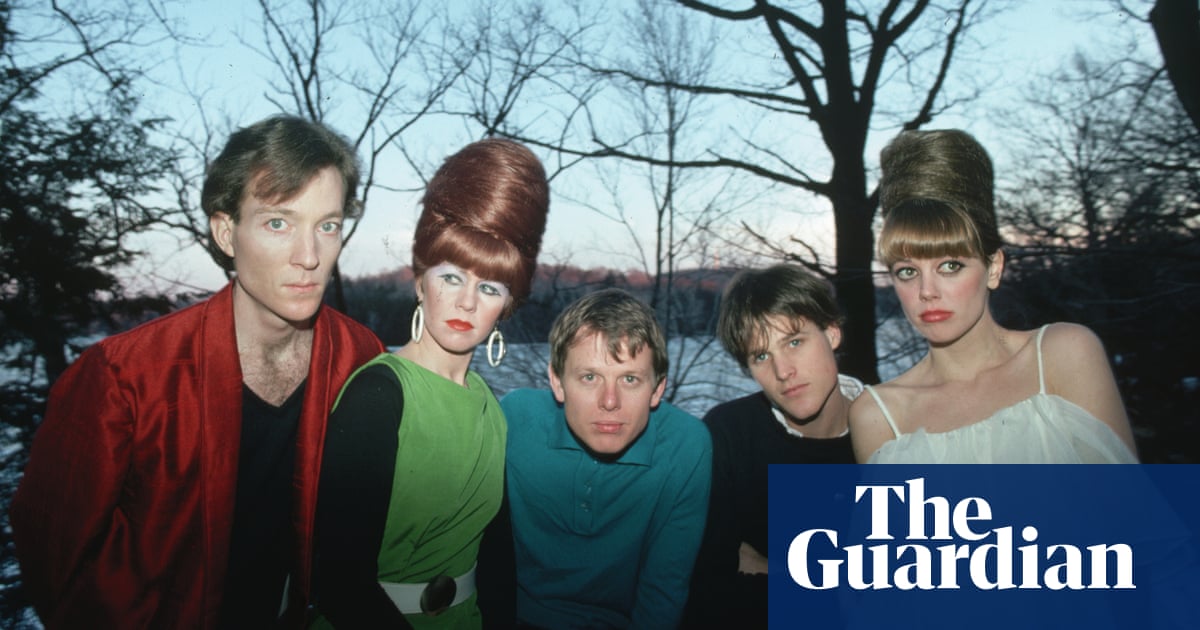
His otherworldly falsetto has led many to describe Milton Nascimento’s music in spiritual terms.
“[My mom once said that] if God had a voice, it would be Milton’s – and she is absolutely right,” said the Brazilian singer Maria Rita, the daughter of one of his closest musical collaborators, the late singing legend Elis Regina.
Yet even the voice of God must rest. As Nascimento nears his ninth decade of life, the inimitable Afro-Brazilian vocalist is preparing to retire from the stages that have made him one of South America’s most venerated troubadours.
“I’m saying goodbye to the stage but I’m not saying goodbye to music. I refuse to say goodbye to music,” the 79-year-old singer-songwriter insisted at the tranquil hillside villa where he is gearing up for the final tour of his six-decade, 43-album career.
“Music is my journey. It’s the most beautiful thing that exists in my soul,” said Nascimento, whose “Last Session” tour will take him to the UK and Europe next month, before a series of emotional farewell concerts in Brazil.
The years preceding Nascimento’s last act have been a melancholy time, both for the singer and his homeland.
As coronavirus ravaged Brazil, killing more than 665,000 people, the Grammy-winning artist retreated into the hills of Minas Gerais, the state where the Rio-born artist was raised after his biological mother died from tuberculosis when he was a toddler.
“I went three years without talking to or seeing anyone and it made me want to stop,” Nascimento said during a rare face-to-face interview at the Rio home he shares with his adopted son Augusto and two Cane Corso dogs named after Paul McCartney and John Lennon.
Politically, Brazil has slipped into the doldrums after the 2018 election of Jair Bolsonaro, a far-right radical who celebrates the 1964-85 dictatorship that once hounded musicians such as Nascimento. “It makes me so sad,” Nascimento said of Bolsonaro’s attacks on the democracy his ethereal tenor voice helped recover and cement.
“I hope our young people don’t allow themselves to be swept up in this dictatorship business, because they don’t understand what it was like,” said the singer, who was stalked by agents from the notorious department of political and social order as his career took off in the 1960s. “Whenever we were going to release a song we had to send it to them for them to censor.”
One classic album – 1973’s Milagre dos Peixes – featured eight instrumental tracks because censors vetoed the words. “Instead of lyrics, I’d just vocalize,” Nascimento said.
Nascimento also lamented the Bolsonaro-era assault on Brazil’s environment and Indigenous communities, whose cause the singer has championed since first visiting the Amazon to act in Werner Herzog’s jungle epic Fitzcarraldo in 1982. “The Indigenous are the Buddhists of the forest,” said the musician, whose recordings feature the languages of native peoples including the Yanomami and Kaxinawá.
Nascimento – whose distaste for Brazil’s leader was clear from his refusal to utter Bolsonaro’s name, as if not wanting to pollute his angelic voice with a name many Brazilians consider a profanity – believed artists were duty-bound to challenge such outrages, despite government pressure. “They can attack us … but they’ll never silence our voices or our music,” vowed the singer who wrote his first song, about the railroad running through his small home town, exactly 60 years ago.
Nascimento remembered how as a boy he had been obsessed with female singers and grew despondent when his voice began to break. Only after hearing a Ray Charles recording of Stella By Starlight age 13 did he grasp the beauty of the male voice. “He cured me that day,” he said.
News of Nascimento’s retirement has sparked an outpouring of nostalgia, a box office rush, and celebration of his astonishing vocal cords and vision.
“[His voice] is strong at the same time that it’s delicate and fragile. It is precious … something that can convey such conflicting ideas at the same time. It’s unique,” said Maria Rita, shedding tears as she described her affection for a man who took her under his wing after her mother’s premature death. “It feels like it’s from the soul … from a place that is familiar, but we don’t know yet – and I think that’s what my mom meant when she said that if God had a voice [it would be Milton’s].”
Ronaldo Bastos, the composer with whom Nascimento wrote some of his most celebrated songs, called his friend “music incarnate”. “He is the most modern and original artist Brazil has ever produced,” the composer said, noting how Nascimento’s influences ranged from bossa nova and the Beatles to the baroque music of Minas Gerais. International fans include Björk and the jazz saxophonist Wayne Shorter, after whom an amphitheatre in Nascimento’s garden is named.
Bastos said Nascimento’s unceasing commitment to using music to fight political, social and racial injustice – forged during the dictatorship and from his own experience of discrimination – was clear from his decision to champion younger black and LGBTQ+ artists: “Milton was born aware of the sad disparities that mark Brazil and has always taken sides.”
Maria Rita hailed Nascimento’s efforts to reach new audiences – exemplified by the decision to sell tickets for the opening show of his tour as NFTs (non-fungible tokens). “He doesn’t write music for the people who listened to him in the 70s … He’s constantly establishing conversations with younger people and that’s a huge example and inspiration for all of us.”
The singer-songwriter Lô Borges remembered hearing the divine voice of “Brazil’s most singular artist” for the first time in the early 1960s while leaving the building where their families lived in Belo Horizonte. “I was spellbound … I’d never heard anything so beautiful,” remembered Borges, then 10.
Nascimento was a decade older, but the age gap did not stop them forming a historic musical partnership. In 1971, Nascimento invited his teenage friend to Rio where they produced what was recently voted the greatest Brazilian album of all time, Clube da Esquina (Corner Club).
Borges said his mother opposed the idea of him moving in with the older composer and a handful of fellow musicians: “It was a brutal moment in the military dictatorship. People were being disappeared, killed, arrested. There was repression on the streets.” The anti-communist mood meant the straggly-haired performers struggled to find a home, with building managers regarding them as a rabble of dope-smoking idlers. “We lived in five different neighbourhoods in a single year,” Borges remembered.
Eventually, Nascimento’s manager rented an isolated beach house where the musicians were free to compose the record of their lives. “It was wonderful … just us and the waves rolling up to our front door,” said Borges. “We weren’t thinking about selling millions of records or being the next big summer hit. We just wanted to make art.”
Nascimento smiled as he recalled how that legendary album was conceived half a century ago, far from the prying eyes of the dictatorship. “It was a record made just by friends … We’d spend all day composing, from the moment we awoke with the fishermen bringing in their nets to the moment we went to bed.”
Those friendships, and his unshakable faith in Brazil’s youth, cheered Nascimento as his motherland faced a profoundly uncertain presidential election, and he prepared to bow out.
“If I didn’t have hope I wouldn’t even be sitting here talking to you, I wouldn’t even be talking to myself,” said Nascimento, whose walls are decked with gold and platinum discs paying testament to his extraordinary life. “In spite of everything, I do feel hope.”









